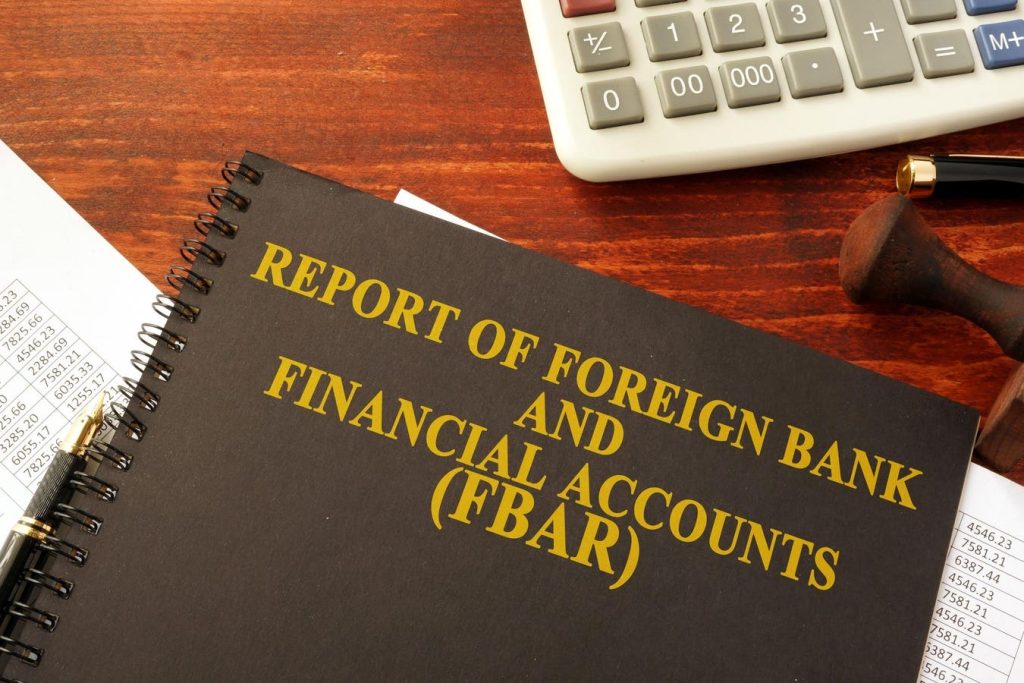U.S. citizens and residents with financial interests in foreign accounts that exceed $10,000 at any time in a year must file an FBAR. The failure to file an FBAR can be costly. If the government shows the failure was willful, it may impose a penalty equal to the greater of $100,000 (as adjusted for inflation) or 50% of the account balance at the time of the violation. And, even if the failure is non-willful, the non-filer can be liable for a penalty of $10,000 (also adjusted for inflation). Because these penalties apply on a per-year basis, they can add up fairly quickly.
The term “willful” is a misnomer in the FBAR context. Indeed, most taxpayers understandably confuse the requisite conduct that gives rise to a willful FBAR penalty, reasoning that it must encompass only knowing and intentional violations. But this is incorrect. For some time now, federal courts have concluded that willfulness also includes reckless conduct. Under this more relaxed standard, a U.S. person is liable for a willful FBAR penalty if—viewed objectively—the person clearly should have known that there was a grave risk that the FBAR reporting obligations are not being met, and that individual was in a position to find out about it easily.
In addition to intentional and reckless violations, there is another subset of willful conduct (that itself falls within recklessness) known as willful blindness. Generally, a taxpayer’s conduct arises to willful blindness if the person “take[s]
s deliberate actions to avoid confirming a high probability of wrongdoing and [when the person] can almost be said to have actually known the critical facts.” See Global-Tech Appliances, Inc., 563 U.S. 754 (2011). In other words, a person acts with willful blindness if that individual consciously avoids learning of the FBAR reporting requirements.
If the conduct does not fit within the contours of intentional, reckless, or willful blindness, a person may nevertheless be liable for an FBAR penalty—in this instance, for non-willful conduct. Generally, non-willful conduct means conduct due to negligence, inadvertence, or mistake or behavior that is the result of a good-faith misunderstanding of the law. There is an extremely fine line between recklessness and willful blindness, on the one hand, and negligence, inadvertence, or mistake, on the other. For these reasons, many FBAR penalty disputes focus on the level of conduct.
The examples below help illustrate the subtle differences between the various types of conduct. In each example, the taxpayer is a U.S. citizen with a reportable financial interest in a foreign account that exceeds $10,000.
Example One – Knowing and Intentional
Mark is a highly educated college professor who established several foreign accounts in the Cayman Islands. When the accounts were opened, Mark instructed the foreign bank to hold his mail—i.e., to not mail any correspondence or statements related to the account to his U.S. address.
Mark established the foreign accounts to avoid paying U.S. income taxes on the interest and investment income. Prior to establishing the foreign accounts, Mark spoke to his historical tax preparer to ask whether there would be any U.S. reporting obligations associated with the foreign accounts. Mark’s preparer advises him that he would have to file an FBAR each year that the account held over $10,000. As a result of their discussion, Mark terminates his historic tax preparer and hires a new one. When the new preparer asks Mark whether he has any foreign accounts, Mark responds “No.”
In this example, it is likely the IRS will argue that Mark’s conduct arises to a level of a knowing and intentional violation. Mark was informed of the FBAR reporting obligation by his historic tax preparer. Because Mark did not want to file the FBAR, he terminated his historic tax preparer to find a new one and advised that new preparer that he did not have a foreign account. In addition, Mark instructed his bank not to mail correspondence or statements to his U.S. address. All of these facts would support a willful FBAR penalty for a knowing and intentional violation.
There are a handful of court decisions that have focused on the knowing and intentional requirement. They include U.S. v. Collins, No. 18-1069, 2021 WL 256962 (W.D. Pa. Feb. 8, 2021), aff’d, 36 F.4th 487 (3d. Cir. 2022); U.S. v. Kelly, No. 2:21-cv-12750 (E.D. Mich. May 2, 2023).
Example Two – Recklessness
Betty formerly resided in the U.S. but recently moved to Germany. After her move, Betty transfers all of her U.S. accounts to Germany.
Each year, Betty uses a tax professional to prepare her U.S. income tax returns. The tax professional provides Betty with a tax organizer that asks whether Betty has any foreign accounts. The organizer also cautions that a U.S. citizen who has certain interests in foreign accounts may have special U.S. reporting requirements. Instead of completing the organizer, Betty provides her preparer with documents related solely to her U.S.-source income.
The tax preparer always sends Betty a copy of her draft returns prior to filing. Betty only gives the returns a cursory review and then sends them back to the preparer for filing. Because Betty earned U.S. interest and dividends, her returns always include a Schedule B.
Here, there is little to no evidence that Betty’s conduct was knowing and intentional. However, there are facts that may support a finding of recklessness. Under the reckless standard, the government must show that Betty clearly should have known that there was a grave risk that her FBAR reporting obligations were not being met and that she was in a position to found out about those reporting requirements fairly easily. Given these facts, the government could contend that the questionnaire and the tax returns should have put Betty on notice of the FBAR reporting obligations. Moreover, these same facts support a finding that Betty was in a position to learn of the FBAR reporting requirements very easily.
There are legions of court decisions that have focused on recklessness. A few of these are U.S. v. Goldsmith, 541 F. Supp. 3d 1058 (S.D. Cal. 2021) (distinguishing between a taxpayer’s recklessness and willful blindness) and U.S .v. Schwarzbaum, 24 F.4th 1355 (11th Cir. 2022).
Example Three – Willful Blindness
Neal moves to the Cayman Islands. When he opens a foreign account in the Cayman Islands, a banker advises him that he should speak with a tax professional regarding any U.S. reporting requirements associated with income earned from the account. Neal later mentions this discussion with his Cayman Islands friend who is also a U.S. citizen. His friend informs him that Neal does not have a U.S. reporting obligation as long as Neal keeps the income in the Cayman Islands. When Neal asks his friend how he knows, his friend responds that he has always done it that way and that the IRS has never asked any questions.
Neal is delighted in the thought that he would not have to pay income taxes in both the U.S. and the Cayman Islands. Neal earns roughly $200,000 a year from the account and because he is semi-retired, this makes up most of his total income.
Neal uses a tax professional to prepare his tax returns. Historically, Neal has always discussed the earnings from his U.S. accounts with the preparer. However, Neal does not mention the existence of the foreign account. When the tax preparer asks Neal to review the returns prior to filing, Neal only gives them a cursory review.
Under these facts, the IRS could argue that Neal’s conduct arose to willful blindness. Although his friend improperly advised him, the IRS would likely contend that Neal engaged in willful blindness because he failed to run this advice by his historic tax preparer. In addition, there is additional evidence of willful blindness in that it is not reasonable for Neal to assume that the $200,000 he earns from the foreign account will escape taxation altogether. For similar findings of willful blindness in these instances, see, e.g., U.S. v. Vattel, No. 4:21-cv-3099 (D. Neb. Apr. 11, 2024); U.S. v. Horowitz, 361 F. Supp. 3d 511 (D. Md. 2019); U.S. v. Ott, 441 F. Supp. 3d 521 (E.D. Mich. 2020); U.S. v. Gentges, 531 F. Supp. 3d 731 (S.D.N.Y. 2021).
Example Four – Non-Willful
Lola is not a tax professional. Her highest level of education is a high school diploma. In 2022, Lola’s mother, a French citizen, passes away. By operation of French law, Lola had a financial interest in a foreign account held in her mother’s name as of the date her mother passed away. In 2022, the highest account balance for the account was $12,000. Lola erroneously believes that she had no interest in the foreign account until 2023 when her mother’s probate concluded.
Because her financial situation is not complex, Lola prepares her own income tax returns. She researches online and determines that the foreign inheritance is not taxable under U.S. law. Lola is not required to file a Schedule B because she has no interest or dividends in 2022.
In this example, Lola can argue that she was non-willful in failing to file an FBAR for her 2022 tax year. Facts that are helpful here include: (i) her low level of education; (ii) the complexity of foreign law and her erroneous interpretation that she had no interest until the next year; (iii) the relatively small amount in the foreign account; and (iv) her erroneous, but reasonable, interpretation that there were no U.S. reporting obligations associated with the inheritance because it was not taxable under section 102. Because the non-willful standard has a reasonable cause component, Lola may also argue that no penalty should apply at all.
Read the full article here












